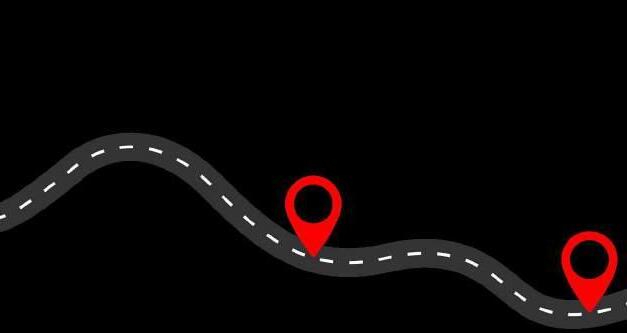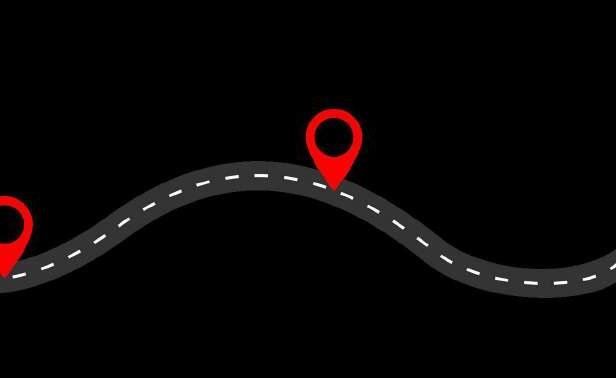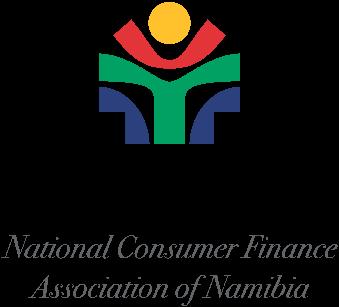
















Some places like Denmark have crazy debt to household income ratios (252.18%) but the global debt to income ration (of the planet) sits close to 237% of GDP.
Global debt is staggering at over $300 Trillion (which includes gov and business debt) but it is even more scary to learn that global public debt (for ordinary folks like you and i) sits at around $97 trillion.
Basically, debt is everywhere. Thus, there has been a real global need to develop policies and legislation to try help consumers repay that debt.
Here in South Africa, we are very fortunate to have the National Credit Act and the provision of debt review. This world-leading piece of legislation offers consumers a dignified way to deal with overindebtedness, through the Courts (or NCT).
You may wonder though, if SA is the only place with such legislation or do other countries also have similar provisions for their citizens?
Well, with debt being so rampant everywhere there are lots of countries that have some sort legislation in place relating to debt. While most provide for rules about debt collection and some form of sequestration there are a few stand-out countries who have progressive assistance for over-indebted consumers.
Here are a few other places in the world with interesting consumer debt management policies:
In the UK it is mostly charities or the government who assist consumers locked in debt. They have programs in place such as:
• Debt Management Plans (DMPs): Arranged through charities like StepChange or government-backed services.
• Individual Voluntary Arrangements (IVAs): A formal legal process to repay debts in a structured way.
• Breathing Space Scheme: Provides temporary relief from creditor enforcement while seeking debt advice.
Debt help in Ireland is mainly focused on payment adjustments related to unsecured debts.
• Debt Settlement Arrangements (DSAs): Agreements for unsecured debt repayment.
• Personal Insolvency Arrangements (PIAs): For secured and unsecured debt restructuring under the Insolvency Service of Ireland (ISI).

The average American citizen has around R2 Million in debt.
• Credit Counseling Programs: Nonprofit organizations help negotiate reduced payments through what are known as debt management plans.
• Chapter 13 Bankruptcy: A court-supervised repayment plan for individuals to manage their debt over time. [It makes you picture Steve Carell shouting: “I Declare Bankruptcy” in The Office, only to find out it is slightly more complicated.]
SA law about debt drew heavily from past Canadian policies, Their systems are quite similar to SA debt review, except in Canada they prefer to avoid court and offer mostly nonprofit services.
• Consumer Proposals: A legal option to negotiate with creditors for reduced payments over a set term.
• Credit Counseling Services: Nonprofit agencies assist with structured repayment plans.

“G‘day mate. Want some debt?”
“ Yes, please!!”
The average Australian household has a whopping R3 Million in debt (and they have to deal with giant spiders, hungry crocs and fire tornados too).
• Debt Agreements: These agreements are legally binding arrangements to pay off debt in affordable installments.
• Financial Counselling Services: Free government-funded counseling for people facing financial hardship.
Home to many sheep and film crews shooting Lord of the Rings movies, NZ has some options for those dealing with debt.
• No Asset Procedure (NAP): NAP is aimed at people with no means to repay their debts, offering relief for unsecured debt under certain thresholds.
• Debt Repayment Orders:
A bit more similar to debt review in some ways these orders are managed through courts to help debtors repay in structured ways.
• Debt Counseling Services (Schuldnerberatung): Free or low-cost services provided by local governments, charities, and churches to assist with debt restructuring.
• Insolvency Proceedings: There are several legal options to manage debt and to try and avoid bankruptcy unless needed.
• Debt Settlement Scheme (Gjeldsordning): A government-backed plan that helps individuals restructure debt to regain financial stability.
• Over-Indebtedness Procedure (Procédure de Surendettement): Administered by the Banque de France, this procedure allows individuals facing severe financial difficulties to apply for debt relief, which may include debt rescheduling, reduction, or cancellation, depending on the individual's situation.
• Debt Restructuring Program (Skuldsanering): A governmentadministered program to help heavily indebted individuals by reducing and restructuring debt.
• Extra-Judicial Procedure for Debt Settlement (Procedimento Extrajudicial de Regularização de Situações de Insolvência - PER): A mechanism that allows individuals to negotiate debt restructuring agreements with creditors outside of court, aiming for a more efficient resolution of over-indebtedness without getting lawyers involved.
• Household Insolvency Law: Commonly known as the "Katseli Law," it provides over-indebted individuals the opportunity to restructure or discharge their debts through a court-approved repayment plan, aiming to offer a fresh financial start.
• Second Chance Mechanism (Ley de la Segunda Oportunidad): This legal framework enables individuals and sole proprietors to restructure or cancel their debts (but only after attempting an out-ofcourt settlement), offering a second chance to those facing insurmountable financial challenges.
• Debt Restructuring Agreements (Accordi di Ristrutturazione dei Debiti): Italian law allows over-indebted individuals to negotiate agreements with creditors to restructure their debts, subject to court approval, providing a legal pathway to manage and reduce personal debt burdens.
The stats show that 1 in every 12 people in Switzerland are impacted by poverty. With over 700 000 people living near or below the poverty line. Switzerland offers support for individuals facing debt challenges through various services:
• Debt Counseling Services: Various organizations provide comprehensive debt counseling, including personal consultations, online advice, and telephone support. They assist individuals in finding solutions to debt problems and implementing them effectively.
• Debt Management Plans: Individuals can work with debt advisors to create realistic debt management plans, aiming to regain control over their financial situations.
• Consumer Debt Renegotiation Programs: Various initiatives, often supported by government agencies and consumer protection organizations, facilitate negotiations between consumers and creditors to restructure and settle debts, aiming to reduce the burden of over-indebtedness among Brazilian citizens.
In Namibia, while there isn't yet a specific government program akin to South Africa's debt review process, they are busy working on a Consumer Credit Bill that may eventually include such provisions. There are already some excellent service providers who provide credit counselling using existing (somewhat outdated) legislation.
• Debt Administration: As outlined by the Namibia Financial Institutions Supervisory Authority (NAMFISA), debt administration provides individuals with "breathing space" to repay their debts in full by reducing monthly payments to an affordable amount. This approach ensures that individuals have sufficient funds for basic needs while managing debt repayments.
• Debt Consolidation: Financial institutions, such as Old Mutual Namibia, offer debt consolidation services. This involves combining multiple debts into a single loan, potentially with a lower interest rate, making it easier to manage repayments.


Whether they call it “counseling” or “counselling” or perhaps even “Schuldnerberatung”, it is all aimed at helping consumers.
Of course, each country’s system varies in terms of exactly how it’s administered and who qualifies, but the common goal is to provide legal, structured debt relief to individuals in financial distress.
Over the next few months, Debtfree Magazine hopes to bring you some additional insights into how such programs run in other countries.
This may present us with not only a better understanding of what is available around the world but may also highlight things that we can all learn from each other.

We all know that transport costs are a large budget item each month. And with rising fuel costs it is important to look for ways to save on transport. Here are 8 money saving tips that may help you make adjustments to your transport habits.

1. Use Public Transport Where Possible
Minibus taxis, buses (eg. MyCiTi in Cape Town), and trains (eg. Gautrain) can be cheaper than driving daily, especially when you also factor in petrol, parking costs, vehicle insurance and maintenance costs.

2. Carpool with Colleagues or Friends
Sharing a ride with others traveling in the same direction reduces petrol and toll fees. Apps like JustGo or simply arranging lifts whenever possible within your network can help.

Reducing unnecessary trips by combining errands into one longer outing can cut down fuel consumption and wear and tear on your car. Try chose times when traffic flow is at its best.


Parents can take turns driving kids to school rather than each family making a separate trip, reducing fuel costs.



If it's safe and practical, walking or cycling to work or local shops can save money while also improving health.

For those who can, reducing the number of commuting days by working from home a few times a week can save significantly on fuel and transport fares. Even if your company does not yet have this as an option, you might be able to make the suggestion.


All work and no play is bad for you.
Times are tough and your budget is probably feeling stretched but that does not mean you can’t have any fun.
Fun doesn’t have the break the bank, and just because you are focused on paying off your debts doesn’t mean life has to stop.
Try some of these tips to have a little budget friendly fun.
Pamper yourself with DIY facials, bubble baths, and relaxation.
Join the global treasure hunt using a free geocaching app.
Going to the beach is great for your mood and your tan. Build sandcastles with the kids for core memories.
South Africa is full of scenic trails—many are free to explore.
Pack a snack and enjoy a walk, picnic, or game of frisbee.
Look out for free concerts, festivals, and cultural celebrations.
Many museums offer free or discounted entry on specific days. Hit Google and find out.
Grab a blanket and enjoy the night sky—no telescope needed.
Find cool spots around your area and snap some Insta-worthy pics.
Remember libraries? Libraries still offer free access to books, movies, and even workshops.
Wander through local markets to enjoy the vibe and window shop.
Invite friends over and fire up the braai for a budget-friendly feast.
Play soccer in the park or try a new sport with friends. Paddle what now?
Explore new areas or nature reserves with a simple road trip.
Help out at a local shelter or community project—it’s free and rewarding.
Many historical landmarks are free or cost very little to visit.
Dust off your board games or play classic card games with friends.
Go Birdwatching
Grab a pair of binoculars and discover local wildlife. It’s not just for old people.
Invite friends and stream free or favorite films and enjoy a cozy movie day.
Try new styles and settings as you capture nature, classic street scenes, or your hood’s unique beauty.



In an important step towards balancing the needs and rights of Namibians with the needs and somewhat overwhelming resources of credit providers, a new consumer education and rights’ association has been born.
The association is called NCFA.